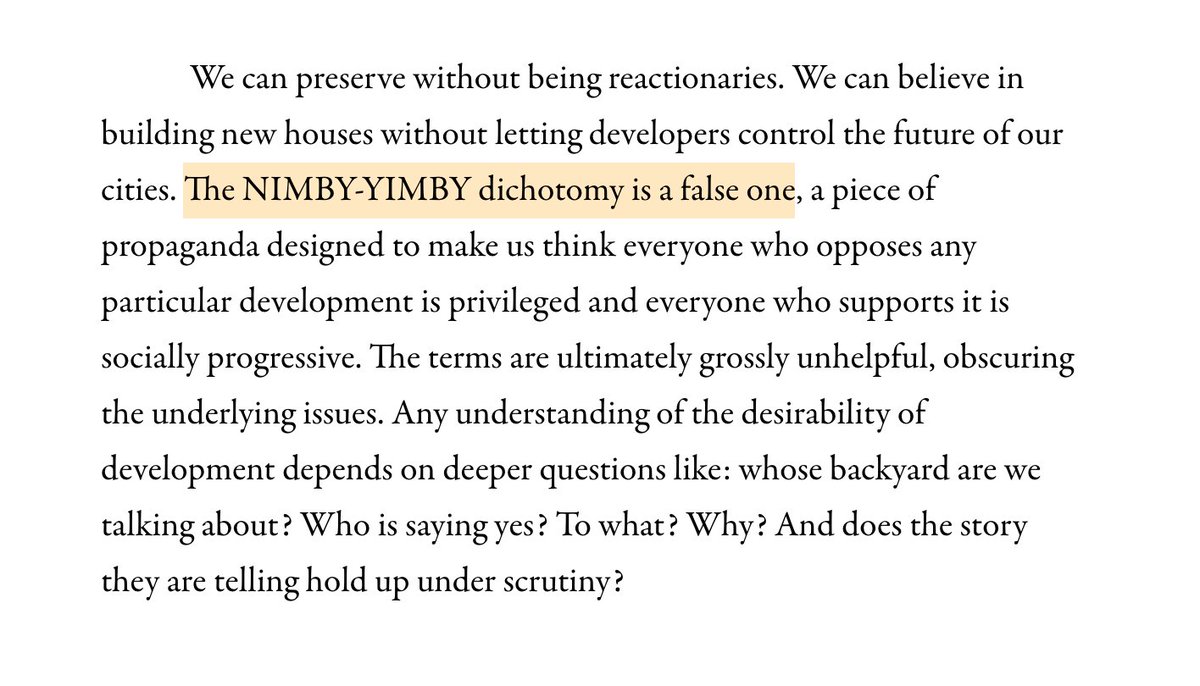I agree there are parallel universes in which it's possible to have a housing policy that is both slow-growth and redistributive. But if that's your pitch you need show how you intend to get there from the current political economy of housing that we have. https://www.currentaffairs.org/2021/01/the-only-thing-worse-than-a-nimby-is-a-yimby
Like, I get why the NIMBY-YIMBY dichotomy is frustrating to people but it's the most accurate way to break down how various factions do or do not benefit from housing production. Supply vs. scarcity is the thing around which our current political economy of housing orbits.
I don't even think Robinson and I disagree on one premise, which is that the current state of urban housing in some way represents a failed market. But there is an underwhelming "after the revolution, neighborhood preservation will be Good" premise underlying this whole piece.
There is an annoying tendency with some writing on the left to simply say "We need a more radical x" as if simply declaring it absolves one of doing any historical analysis of x and using that analysis to inform one's views about how to effect the more radical version of x
Like, it does not make me happy to describe how very well meaning activist movements in support of tenants, environmental protection, historic preservation were all working within a structure whose ultimate purpose was to generate wealth for landowners. But that is what happened!
"It's neoliberalism to ask that writers on present-day issues contend with current realities and structures rather than simply willing them away through the sheer force of their utopianism" https://twitter.com/tfine/status/1347974653059485699
Sorry that I expect writers to work within the capitalistic hegemonic framework of "considering the history and present reality of things"
The magazine is literally called "Current Affairs"

 Read on Twitter
Read on Twitter


